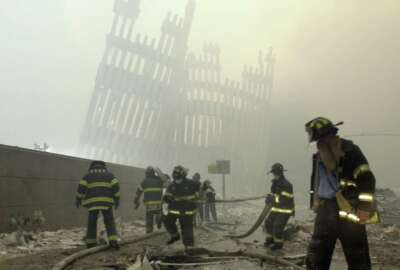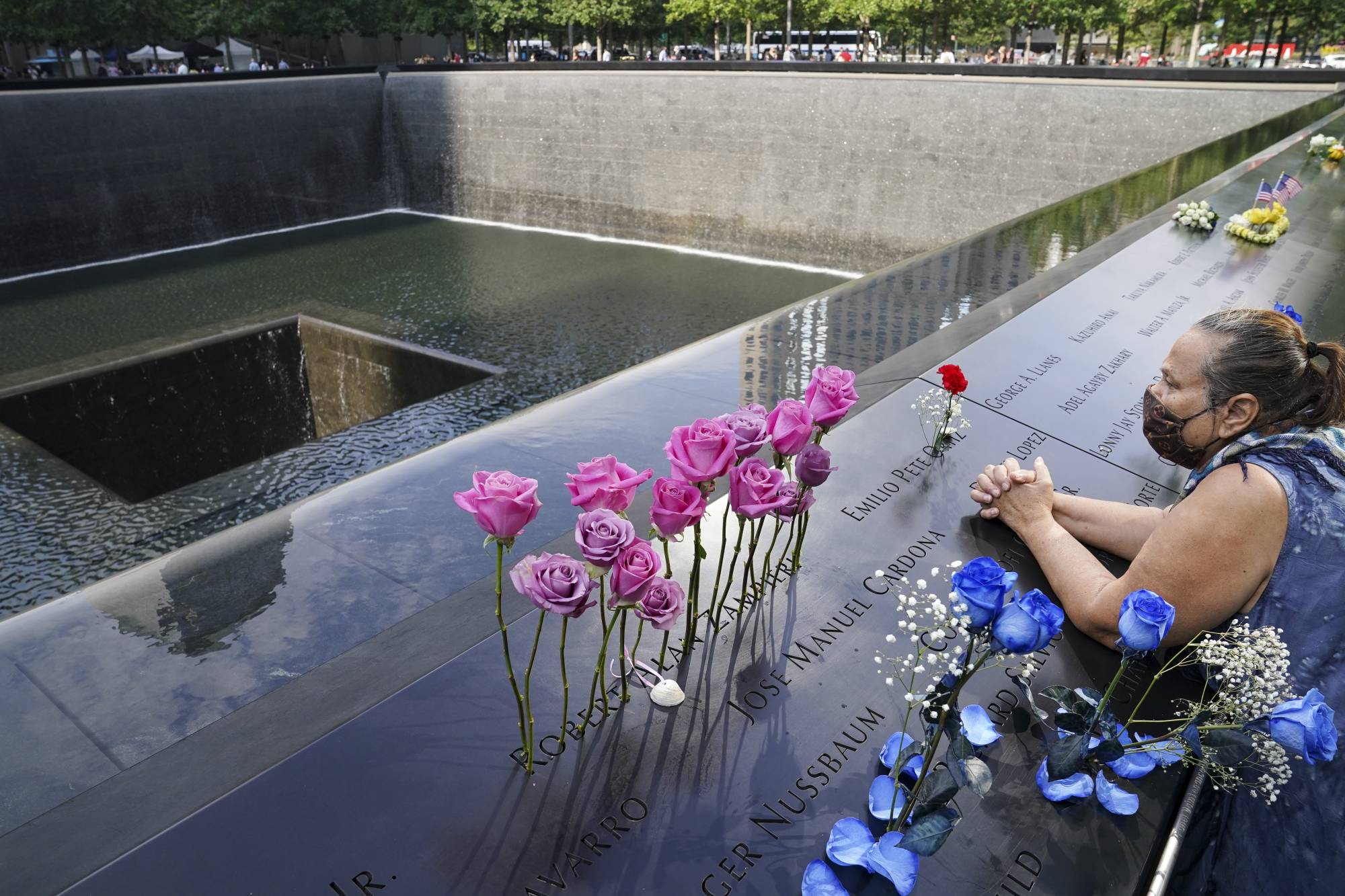Questions remain about victim compensation 20 years after 9/11
Congress set up two special funds that have paid out billions of dollars to 9/11 victims but lawmakers are still considering changes to eligibility criteria. Last...
Best listening experience is on Chrome, Firefox or Safari. Subscribe to Federal Drive’s daily audio interviews on Apple Podcasts or PodcastOne.
Nearly 20 years after Sept. 11, 2001, there are still questions about how victims of the attacks and their families will be compensated and how much they’re eligible for. Congress set up two special funds that have paid out tens of billions of dollars to victims so far. But lawmakers are still considering changes to the eligibility criteria. And last year, lawmakers told the Government Accountability Office to estimate how much those changes would cost. Those calculations are now in. To help explain the complicated landscape of 9/11 victims compensation, Federal Drive with Tom Temin talked with Triana McNeil, director of Homeland Security and Justice Issues at GAO.
Interview transcript:
Triana McNeil: There are two funds for 911 victims compensation. The first is the Victim Compensation Fund. This was established in 2001, after 9/11. And the law that established it is the Air Transportation System Safety and Stabilization Act. And this fund is funded through the federal appropriations, and it’s been extended till 2092, so it will continue to get funding as appropriations are made. And eligible persons here include persons that were physically harmed or killed as a result of terrorist related aircraft crashes on September 11, or they were involved in the debris removal that took place immediately after the crashes, or their spouses and dependents of those victims. So that’s the first one. The second fund is the US victims of state sponsored terrorism fund. And that’s what our work focused on. This fund was established by the Terrorism Act in 2015, and it was amended in 2019 by the Clarification Act. So in 2015, only immediate family members. that’s parents and non dependent siblings of 9/11 victims could get money through this fund. In 2019, the Clarification Act made 9/11 victims spouses and dependents who were previous precluded, they could now get money from this fund. So unlike the Victim Compensation Fund, that’s funded through federal appropriations. This one, eligible persons need to have a judgment, a decree or an order on liability and damages from a federal district court against a designated state sponsor of terrorism. And so victims and immediate family members from 9/11, as well as other acts of state sponsored terrorism can get money from this fund. It’s not just a 9/11 victim fund. For example, family members and Iran hostages can get money from this fund. I hope that helps.
Jared Serbu: No, it does help. So in that latter case, you would really be suing the government of Iran, but since the government of Iran is essentially judgment proof, that’s the purpose of the fund is to compensate you.
Triana McNeil: That is right. And so claim amounts and payments are not always the same, because the fund only makes payments to claimants with money that the fund has allocated. So the fund is based on money paid by state sponsors of terrorism, and of course, this is still in process. All money has not been collected. Some money may not ever be recouped.
Jared Serbu: Okay, and to further complicate that distinction between victims spouses and dependents and family members, I think one of the things GAO was asked to do here was determine the amount of catch-up payments for one of those two groups. Can you describe what those catch-up payments are and how you went about figuring out what the total amount would be?
Triana McNeil: Sure. So we were asked to do two things. Estimate the lump sum catch-up payments to eligible 9/11 victims spouses and dependents that would result in the percentage of claims received from the fund being equal to the percentage of claims of 911 family members.
Jared Serbu: Congress stipulated those two things needed to be equal, right?
Triana McNeil: That is correct. They asked us to estimate what that would be to make them equal. The act does not contain a provision to make the catch-up payments, it just asked GAO to estimate what the catch-up payment would be. And so the second thing that GAO was asked to do was estimate the lump sum catch-up payment by group. So what would the victim’s estates get? What would the spouses get? And what would the dependents get? And so what we did, we estimated that there was 5,364 9/11 victims’ spouses and dependents that had applied for money from the fund in rounds, one, two, and three. And we worked to make sure that the proportion of the payments provided to the 9/11 family members, which is the siblings and parents that had been paid, would be the same for those victims, spouses and dependents. And what we found that the 9/11 family members received about 1.2 billion of their 19.7 billion in net eligible claims. So they got about 6% in those first two rounds from the fund. And so we use that 6% to estimate what the catch-up payment would be for the previously precluded victims, spouses and dependents. And again, there was 5,364 of them based on our read of the data. And so we found that their catch-up payment, as in total, would be about 2.7 billion.
Jared Serbu: Got it. So I guess one of my fundamental questions here is, okay now that we’re 20 years on from 9/11, this last bit of work that you did for Congress to figure out what the payments would be subject to appropriations, have most of the questions been answered at this point about exactly how we’re gonna compensate victims or are there still computations out there that need to be done by by ‘gAO or someone else? Do we feel like we have a solid scheme in place that answers all of the questions that are posed by the current statutory schemes for compensating victims?
Triana McNeil: So we provided these estimates for Congress so they can consider what’s appropriate for catch-up payments. They can follow the work that we did and implement that, or something close to that, or they can do something very different. That’s definitely up to them. But I think the work that we did provides a good roadmap. And again, these are rough estimates, because individual payments will vary based on statutory caps and other compensation that individuals have received from life insurance and pensions. But I do think that this is a very good roadmap for the Congress to consider if they decide to provide catch-up payments to the victims and the spouses and the dependents.
Jared Serbu: Right. And so Congress’s question for you was basically, if we did catch up payments in this way, making them equal in the way that you talked about, what would that look like GAO? And now you’ve answered that question.
Triana McNeil: That is correct. We have answered that question.
Copyright © 2025 Federal News Network. All rights reserved. This website is not intended for users located within the European Economic Area.
Tom Temin is host of the Federal Drive and has been providing insight on federal technology and management issues for more than 30 years.
Follow @tteminWFED





